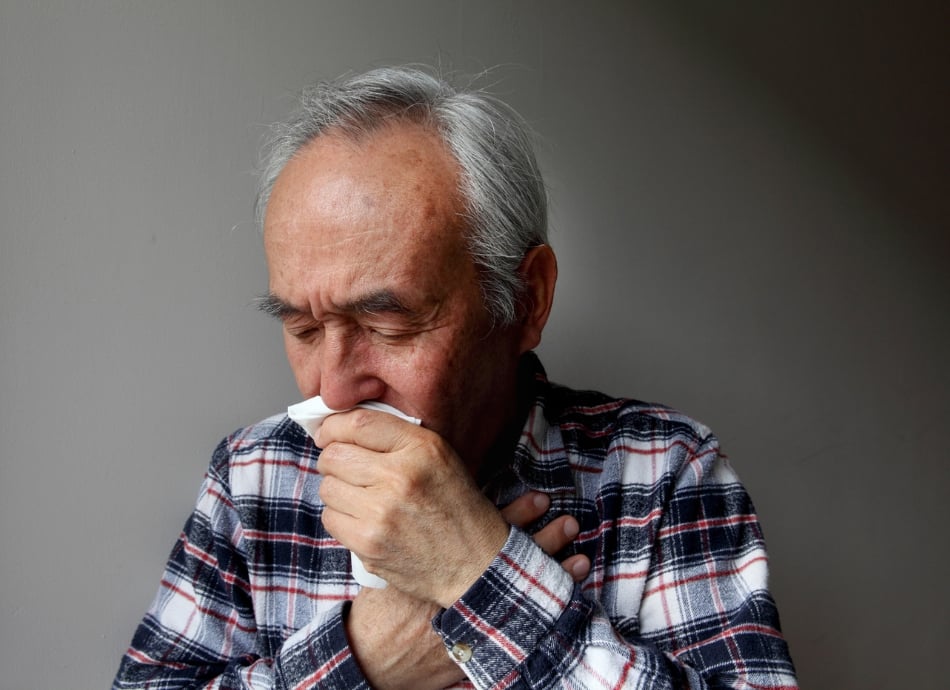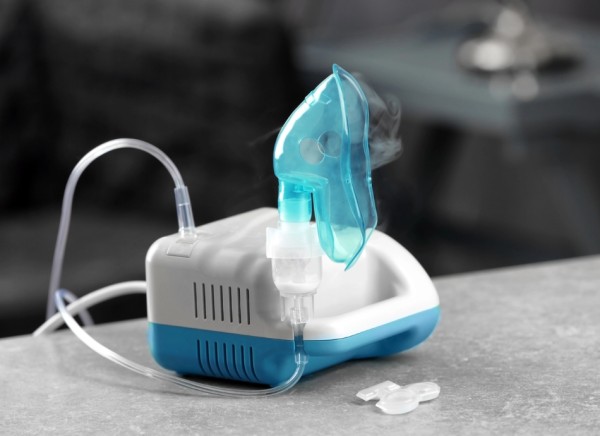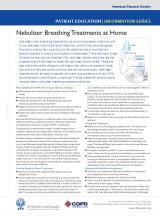You can now add Healthify as a preferred source on Google. Click here to see us when you search Google.
Nebulisers
Key points about nebulisers
- A nebuliser is a compressor machine that converts liquid medication into a fine mist breathed in through a mask or mouthpiece.
- It's used to deliver medicines to your lungs and airways.
- Nebulisers need regular maintenance and cleaning to be safe and effective.
- Learn more about nebulisers.

A nebuliser is a compressor machine that converts liquid medication into a fine mist that you can easily breathe into your lungs. The machine has a mouthpiece or face mask that you use to breathe in the medicine for 3 to 15 minutes.

Image credit: Depositphotos
Nebulisers for asthma or COPD
- Generally, nebulisers are not preferred for people with asthma or COPD because they deliver a high dose of medication which can increase the chance of side effects.
- With so many improved handheld inhaler devices there is now less need for nebulisers for people with asthma or chronic obstructive pulmonary disease (COPD). For most people, a handheld inhaler device together with a spacer is just as effective as a nebuliser to get medication to your lungs.
- Even when you're having a flare-up (exacerbation), using a spacer with your reliever medicine is as effective as, or even better than, using a nebuliser.
- However, in some situations where the use of a handheld inhaler device isn't suitable, such as for young children or very sick people, using a nebuliser is an alternative.
Nebulisers for other wheezy lung diseases
- In addition to bronchodilator therapy used in treating wheezy lung diseases, many other treatments can be delivered with a nebuliser to treat conditions such as cystic fibrosis, bronchiectasis and pulmonary artery hypertension.
- Treatments include antibiotics, pulmonary vasodilators, airway hydration and mucolytics (eg, hypertonic saline, nebulized surfactant).
Nebulisers need regular maintenance to be kept thoroughly clean to prevent possible contamination. If not cleaned properly, nebulisers can harbour bacteria and fungi, leading to chest infections.
If the use of a nebuliser is recommended for a short period of time, then you may want to consider hiring one. Some pharmacies offer a nebuliser hire service, so ask your local pharmacy.
If the use of a nebuliser is recommended long-term, on an ongoing basis, then you may want to buy a nebuliser. There are different types of nebulisers on the market and the choice of nebuliser is mainly based on preference. They cost a few hundred dollars. Depending on your condition and circumstances your local hospital may be able to provide you with a nebuliser.
Some points to consider when buying a nebuliser are:
- Is the nebuliser suitable for the medicine you have been prescribed? Not all medications can be used with all types of nebulisers.
- Your medical condition – depending on your condition you will need your nebulisation more or less often, and your nebulisation time will vary as well. Before choosing your nebuliser get advice about the one that best matches your needs.
- Is it battery operated or electrical?
- Is it noisy or quiet?
- Do you need to carry the nebuliser everywhere, eg, if you travel a lot?
- Cost.
- What type of accessories does it need?
A nebuliser usually comes with detailed instructions on how to use it. Here is some general guidance:
- Place the prescribed amount of medicine into the nebuliser chamber.
- Connect the nebuliser to the tubing and attach it to the machine.
- Attach the mouthpiece or mask to the chamber and switch on the machine.
- If you're using a mouthpiece, seal your lips around it and breathe through your mouth, not your nose. If you're using a mask, place it over your mouth and nose.
- Don't talk while using the nebuliser.
- Keep the nebuliser upright while in use.
- When you no longer see a mist, which will be after 10 to 15 minutes, the treatment is finished.
- Healthcare workers or family members may be exposed to small amounts of the medicine and may need protection.
- A well ventilated room is recommended to limit the passing on of any virus particles if you have COVID-19 or a seasonal flu when you're using your nebuliser.
Video: How to properly use a nebulizer
Please note the nebuliser in the video may differ from the type of nebuliser you are using.
(American Lung Association, US, 2019)
Nebulised antibiotics(external link) NHS, Scotland, 2019
Brochures
5 questions to ask about your medications(external link) Health Quality and Safety Commission, NZ, 2019 English(external link), te reo Māori(external link)
Medicines and side effects [PDF, 91 KB] Healthify He Puna Waiora, NZ, 2024
Nebulizer breathing treatments at home(external link) American Thoracic Society, US, 2021
Guidelines for nebulising antibiotics(external link) Cystic Fibrosis NZ, 2019
Guidelines for nebulising hypertonic saline(external link) Cystic Fibrosis NZ, 2019
References
- Nebuliser(external link) Asthma + Respiratory Foundation NZ
- Which device in asthma(external link) Patient Info, UK
- Chinese College of Emergency Physicians (CCEP); Emergency Committee of PLA; Beijing Society for Emergency Medicine; Chinese Emergency Medicine. Expert consensus on nebulization therapy in pre-hospital and in-hospital emergency care(external link) Ann Transl Med. 2019 Sep;7(18):487
- Cazzola M, Ora J, Bianco A, et al. Guidance on nebulization during the current COVID-19 pandemic(external link) Respir Med. 2021 Jan;176:106236
- Biney IN, Ari A, Barjaktarevic IZ, et al. Guidance on mitigating the risk of transmitting respiratory infections during nebulization by the COPD Foundation Nebulizer Consortium (external link)Chest 2024 Mar;165(3):653–668
- Amjad Z, Abaza A, Vasavada AM, et al. Inhaled antibiotics in non-cystic fibrosis bronchiectasis (NCFB) – a systematic review of efficacy and limitations in adult patients(external link) Cureus 2022 Oct 25;14(10):e30660
Brochures

Medicines and side effects
Healthify He Puna Waiora, NZ, 2024

Nebulizer breathing treatments at home
American Thoracic Society, US, 2021

Health Quality and Safety Commission, NZ, 2019 English, te reo Māori
Credits: Healthify editorial team. Healthify is brought to you by Health Navigator Charitable Trust.
Reviewed by: Dr Roland Meyer, Specialist Physician, Respiratory and General Medicine
Last reviewed:





